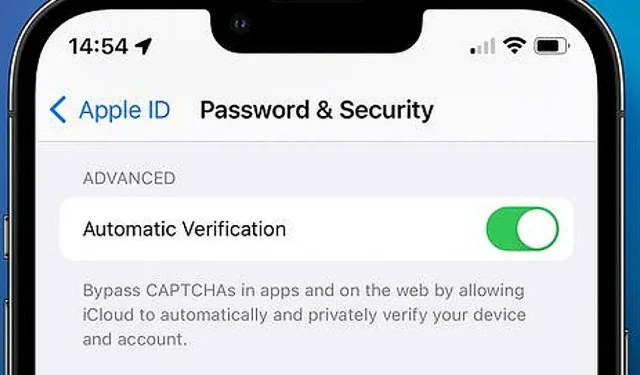This new iOS 16 feature will let you bypass annoying CAPTCHAs: here are the details

The upcoming iOS 16 will bring many small improvements to the iPhone operating system, and the latest feature found in the operating system includes the ability to bypass CAPTCHAs on websites that are compatible with this feature. Thus, this feature will allow users to log in or register on a website without having to manually select images from the CAPTCHA verification grid, and the iPhone will handle the necessary authentication on its own.
iOS 16 Private Access Token: How It Works
According to Apple’s official explanation of the process, the company’s mobile operating system will send compatible websites a set of digital, anonymous authentication information called a Private Access Token (PAT). What PATs do is authenticate the device privately without giving the website access to identifiable digital information about the device.
This process can be activated manually from the “Password & Security”tab in the Apple ID section of the device’s settings, and is simply called “automatic verification”. However, for users to find it useful, this feature must also be supported by websites using the CAPTCHA verification process.
Interestingly, the Macrumors report states that popular content distribution network (CDN) providers such as Cloudflare and Fastly, which are responsible for running a network of thousands of websites around the world, have already announced Apple’s PAT support, which is essentially, will provide support for the auto-verify feature once it is rolled out in the stable build with iOS 16. Apple will also roll out the feature to macOS Ventura.
Other iOS 16 features that have been revealed during the beta testing process include the ability to transfer eSIM settings between two iPhones via Bluetooth, potentially allowing users to skip the revalidation process that has so far been required to transfer an eSIM to a new device. Other features that have been revealed also include potential support for Always-on Display, which could come to the upcoming iPhone 14 later this year.
Leave a Reply